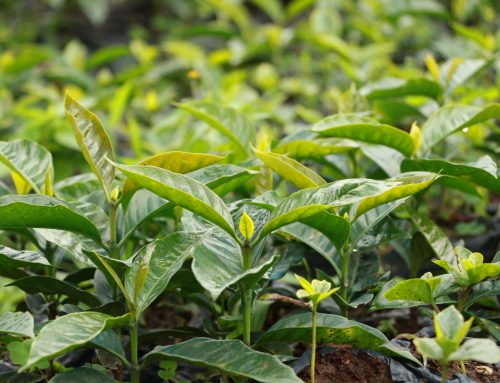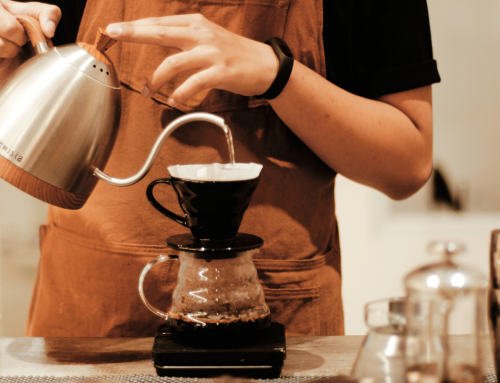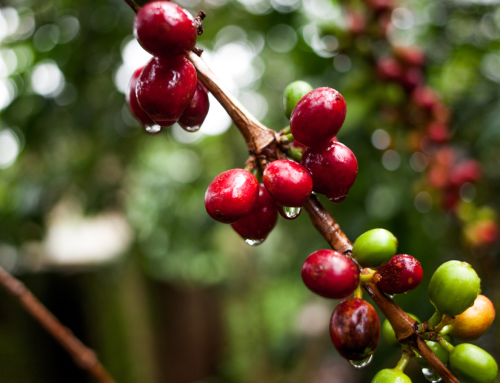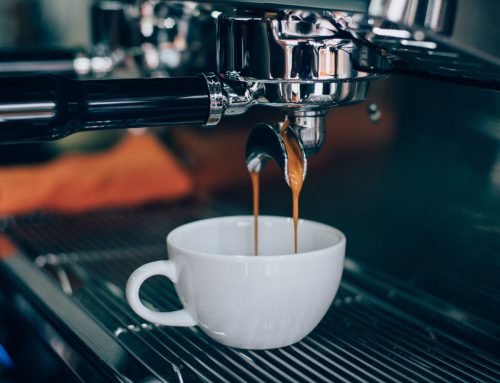As coffees from Ethiopia arrive in the store — three washed and three natural — our head of content spoke with Bruck Fikru, general manager of Volcafe’s operation in Addis Ababa (Volcafe is Genuine Origin’s parent company). They discussed both how coffee works in Ethiopia and how — though there isn’t yet a Volcafe Way team in place there, due to the country’s laws — Volcafe’s size and resources are still working for GO’s customers.
Michelle Maisto: In many other coffee countries — throughout Central America, for example – our teams work very closely with producers and have real, enduring relationships. Since coffee works quite differently in Ethiopia, how well are you able to know the farms, or the co-ops?
Bruck Fikru: By law, most activities in the coffee value chain are reserved for local companies. International companies are not yet allowed to operate on the ground. They’re only allowed to operate a representative office like we have, much like other companies that Genuine Origin competes with. It’s equipped with a laboratory, and the focus is on working as closely as legally allowed with producers and exporters who have coffees, and buying on the basis of samples.
The rules are changing, though, as of a couple of months ago. Going forward we’ll be able to engage more in projects with producers, especially since the new Coffee Law and associated legal structures encourage traceability and quality oriented production.
MM: Why are those rules in place? Is it to protect the producers, or the economy?

The new Volcafe lab in Addis is open to suppliers, exporters, clients, farmers and even competitors. Samson (far left, in charge of customer success) and Getachew (far right, head of QC) are shown cupping with Abiyu (from Trabocca, second from left) and Philipp, a coffee student.
BF: It’s mainly path dependence. A significant section of the economy has been closed to foreign participation since the 1970s, and that persisted until about 10 years ago. The systems is slowly opening up now.
Coffee plays a central role in the country’s trade and foreign exchange regime, and it will take some time before there’s convergence with other coffee-producing countries.
MM: So, are you able to go to the farms and see things, but you can only buy at the auctions based on quality and price?
BF: For coffee flowing through the Exchange, it’s the exporters themselves who have access to the auctions. But not all coffee goes through the exchange system. The coffee from private farms and cooperatives that we’re buying is bypassing the exchange. It goes from member co-ops to the Unions, and the Unions have the dry mills, or rent the dry mills, from where the exports are organized.
Technically, as FOB buyers, we own the coffee once it’s on the vessel in Djibouti, which has the port the coffees leave from. When the coffee is ready to ship out of Addis and go to the port, we draw pre-shipment samples from the warehouses in Addis for each individual lot, and we go through the samples carefully. The coffee does not ship until we are sure that it meets the contract specifications.
“We have a rigorous coffee control program in our lab, and that’s a real advantage. Even when suppliers know we don’t have a market for the coffees … they’ll still send us samples to get feedback … because they know that we take our quality-control work very seriously.”
MM: How competitive is the buying process?
BF: There are 15 to 20 international buyers in Addis. Everyone from Olam to Hamburg Coffee Company. Certain companies like Royal don’t have a strong presence in Addis but they come and aggressively buy at certain times of the year. So it does get competitive, especially because we don’t buy coffee on a daily basis. But we’ve been quite lucky. Volcafe has historically purchased about 10 percent of the coffee Ethiopia exports, which makes us one of the leading buyers of Ethiopian coffee. The office in Addis works closely to support our marketing offices across the world, in the U.S., Europe, Japan and Australia. We have started out with modest volumes for Genuine Origin and expect to grow this significantly going forward.
Despite the volumes we’re buying, we pay a lot of attention to quality. We’re not just going in there and grabbing anything. We’re buying a lot of specialty, large quantities of premium grade washed and naturals, and the quality-control work is nonstop. Our lab is very picky. We are daily cupping maybe 15, 30 samples at a time and giving feedback to the exporters. If the coffee meets contract specs, we approve it for shipmentt, and if it doesn’t then we ask the exporters to upgrade or replace it.
We try to discover things that are affordable for our clients, so it’s not always easy to get the balance between quality and price right. The toughest aspect of the work is finding the local exporters — there are a growing number, more than 100 legit ones — who have the coffees we want, or who are aiming to source the coffees we want through the exchange, and then to work closely with them to ship the right quality, performing to the agreed quality specs. So, it’s about maintaining those relationships and constantly learning from one another.
We’ve bought over 300,000 bags this coffee year. The coffee year in Ethiopia runs from about July to June of the following year.
MM: From that enormous amount, how are you deciding what to put aside for Genuine Origin?
BF: For coffees of Genuine Origin quality, we can’t just take the order and expect someone to find that at the market. It has to be from a farm, or an exporter working closely with a primary mill or sourced from a cooperative. After going through dozens of samples, we select a handful and share them with the team in New York. And we have to move fast — if we take too long to make up our minds, it can be bought by someone else. But with the GO coffees, we have more control over exactly what we’re getting. We’re not buying within a range, we’re buying exactly the coffee that we looked at and approved and negotiated over. And that takes weeks, sometimes months.
MM: So your relationships must come into play, in finding those, yes?
BF: Absolutely. We have a good reputation for being there to support the market and buy large quantities. But we’re also known for having a serious coffee program. We always make sure what we’re buying is within spec, in cup and aspect. We have a rigorous coffee control program in our lab, and that’s a real advantage. Even when suppliers know we don’t have a market for the coffees, say when it’s difficult to match offered prices, they’ll still send us samples to get feedback on what we think about the coffee, because they know that we take our quality-control work very seriously. •






